Blogging: An Adventure in Professional Development
At the IATEFL 2015 Annual Conference I gave a presentation about potential contribution of blogging to professional development in a forum. It was the first time that I participated in a forum and it was a very enriching experience because all presenters focused on blogging from different perspectives.
With the advance of technology and proliferation of Online Communities of Practice blogging has become a promising form of continuous professional development for the networked educators. Many researchers, educators and bloggers concur blogging may bring about opportunities for cooperative learning, connecting, sharing, and reflecting. I have been an avid blogger for more than 5 years and my blog had witnessed and accumulated accounts of my journey as a learning teacher. This presentation described a case study which explored posts of an academic blogger who had been utilising blogging as a form of professional learning and presented an approach which other educators might employ as a means for their professional development.
Affordances of Academic Blogging
Potential opportunities afforded by academic blogging involve exposure to insights and experiences of others in the blogging community, engagement with professional learning and networking. Blogs are instrumental for professional development because they enable networking which is an important asset in the digital age. It is often remarked that sharing-dissemination of information- is an important responsibility of the modern educator. In addition, blogs can support professional identity development by making one’s particular values and perspectives and thinking public and explicit (de Moor & Efimova, 2004 in Luehman, 2008) and by developing social alliances and affinity groups. Networked educators bond through shared practices, goals, endeavours, and interactions that support identity development (Gee, 2001, in Luehman, 2008). Furthermore, blogs provide opportunities for reflective practice which is characterised as “a process of internal dialogue facilitated by thinking or writing and through external dialogues and reflection together with others” (Gee, 2001, in Luehman, 2008).
Reflective writing was considered the major form of reflective action within reflection-on-action, that is reflection before or after teaching. The 5Rs Framework is suggested as an effective implementation strategy guiding reflective practices and triggering reflective writing (Bain, 2002).
Table 1
The 5Rs Framework for Reflection
| 5R Framework | What is it? | Critical Questions to Ask |
| Reporting | A brief descriptive account of a situation / issue (ie. the reflective trigger) | What happened, what the situation and issue involved |
| Responding | Your emotional / personal response to the situation / issue etc | Your observations, feelings, questions about the situation |
| Relating | Personal and/or theoretical understandings relevant to the situation / issue | Making connections between the situation and your experience, skills, knowledge and understanding |
| Reasoning | Your explanation of the situation / issue | Explaining the situation in terms of the significant factors, relevant theory and/or experience |
| Reconstructing | Drawing conclusions and developing a future action plan | Your deeper level of understanding about the situation- issue that is used to reframe reconstruct your future practice and further develop your understanding of professional practice |
Using a case study approach, my study aimed to examine the content of 30 blog posts to ascertain the role of written reflection in improving my professional knowledge and my teaching. Guided by Hatton and Smiths’ framework (1995) for Levels of Reflection, content analysis traced verbal manifestations highlighting hints of change in pedagogical beliefs and practices.
Figure 1 Hatton and Smiths’ Framework; Levels of Reflection (1995)
Findings
Blog posts which were categorised under “descriptive reflection” usually listed reasons why topic of the writing could be a challenge, referred to relevant literature, explored own professional practices and portrayed professional and personal reasons to instigate action. Blog posts bearing qualities of “dialogic reflection” often highlighted the process of making deliberate connections between my pedagogical beliefs and classroom practices. Some blog posts were identified as “critical reflection” because they triggered constructing and reconstruction of my understanding of realities of teaching and thus leading to a development of a deeper understanding of my own teaching as well as devising future action plans.
Conclusion
Blogging appears to offer a potentially rich and transformative means of continuous professional development since it may empower critical analysis for reflection. Consequently this dialogic reflection, sharing and cooperative learning may transform pedagogical beliefs and practices.
In sum, I think I learned a lot as a professional from reflective blog writing and I was happy to share my retrospective case study with other colleagues at IATEFL 2015.
You can find further details in my slides below.
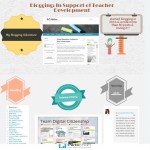
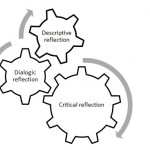
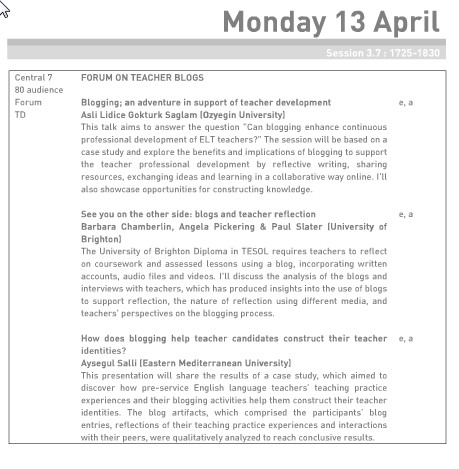
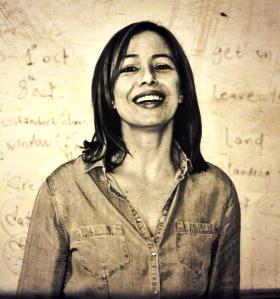
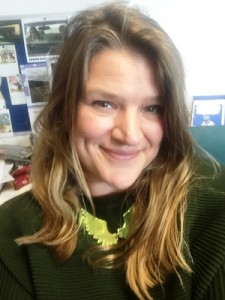
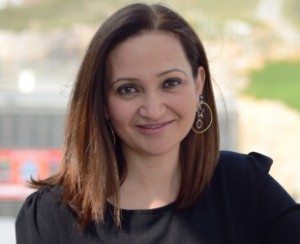
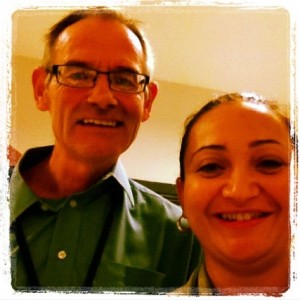

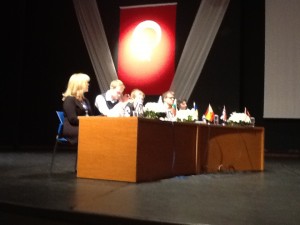

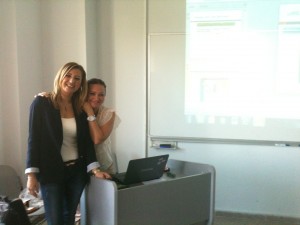



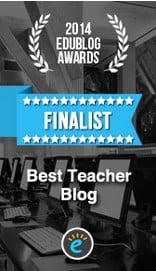


Recent Comments